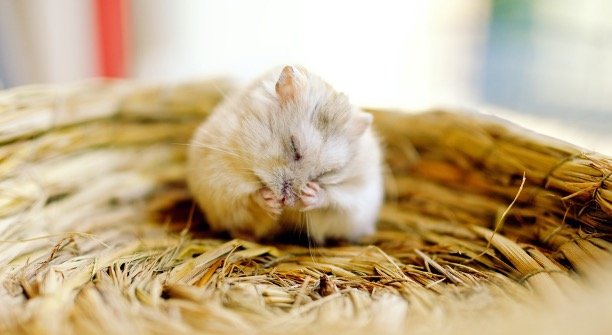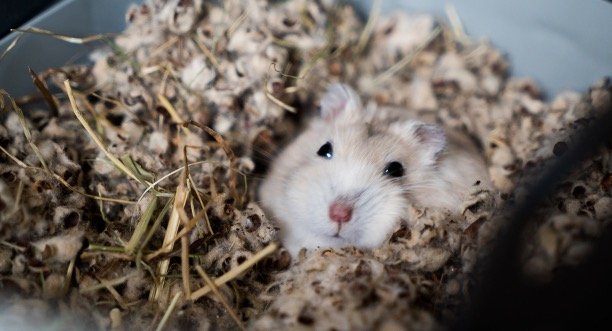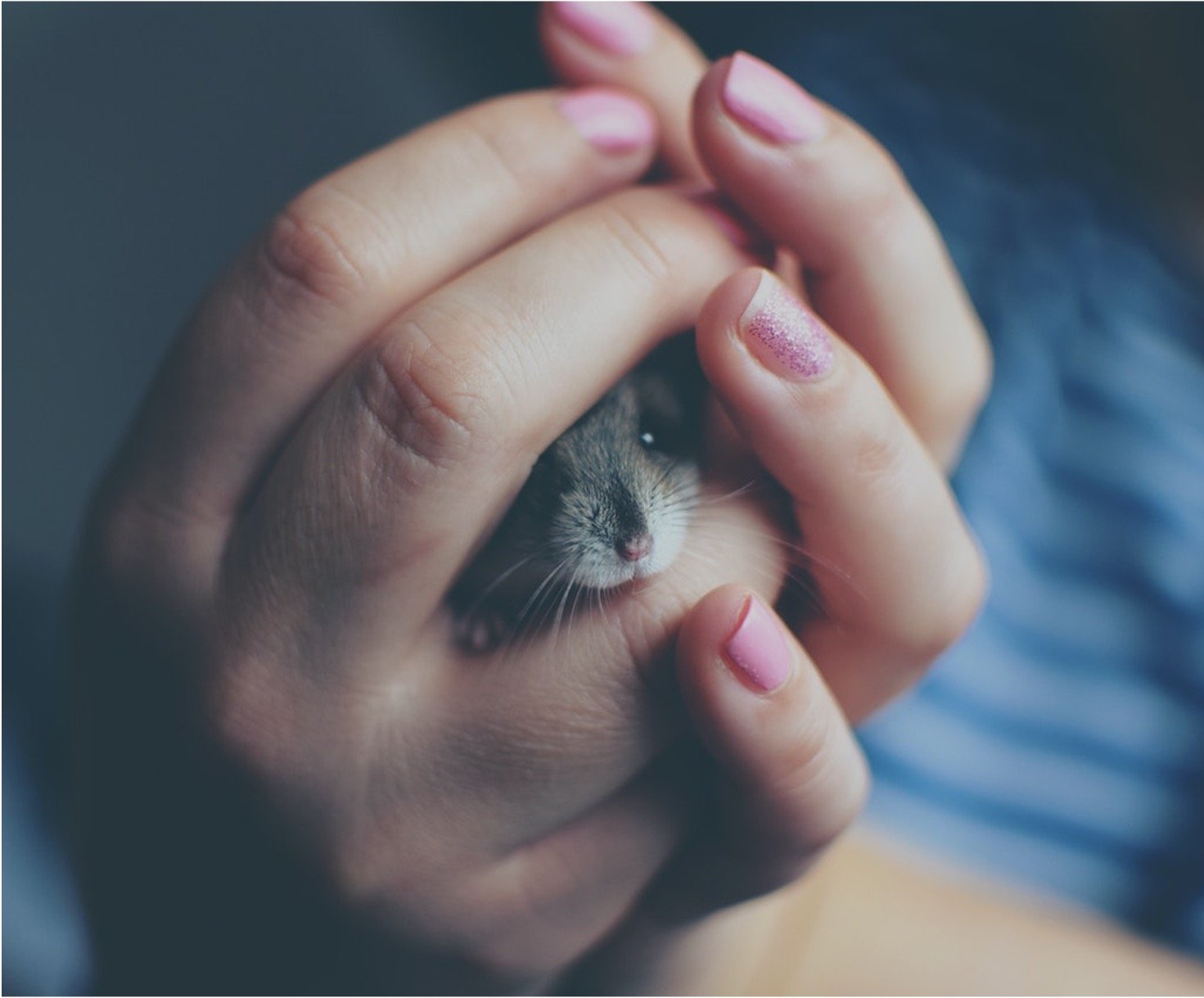
Do Hamster Sleep?
They don’t do it all at once as humans do, but instead wake up and nap at various times throughout the day (and sometimes night). Additionally, they are nocturnal, so you will most likely spot them (or hear them) on the hamster wheel late at night.
Your new pet’s lack of nighttime sleep is cause for concern, and you should take note of this. Make sure your hamster is getting enough sleep and staying healthy, but don’t freak out if its sleeping habits are unusual.
When Do Hamsters Get Tired?
Sleeping for 12 to 14 hours a day is the norm for hamsters, but unlike humans, who typically only sleep once daily, hamsters have polyphasic sleep-wake cycles. This means that their 12- to 14-hour sleep period is divided into several shorter naps throughout the day.
Sleep Patterns of Hamsters
Numerous studies have been conducted on the circadian rhythm of sleep in hamsters, specifically Syrian and golden hamsters, so we know quite a bit about their sleep schedule. Studies have shown that hamsters spend roughly the same amount of time in the rapid eye movement (REM) phase of sleep as humans do (up to 25%).
Although it is widely accepted that dreaming occurs during the rapid eye movement (REM) phase of sleep, it remains unclear whether or not hamsters share this ability.
However, you may notice your hamster exhibiting slight paw or eye twitches, which many people interpret as evidence of dreaming or other forms of brain activity. Don’t freak out if you wake up your sleeping hamster to find it moving around like this.
Also, it’s helpful to know that hamsters in captivity sleep during the night. This means they have the opposite schedule as most people, being awake at night and sleeping during the day.
Of course, some people only work at night, so they have to sleep through the day like hamsters. But most hamster owners will find that their pets are at their most active while they are sound asleep.

What to Do If Your Hamster Starts Sleeping a Lot?
Your hamster may be sick or hibernating if it sleeps more than usual. If the temperature in your hamster’s cage drops below 50 degrees, the hamster may go into hibernation. Your hamster’s cage may be colder than the rest of the house if it is located near an exterior wall with poor insulation or a draughty door or window. You should check the hamster’s temperature before concluding it is ill.
Also, know Can a hamster eat watermelon?
There’s a good chance your hamster is sick if the temperature in its cage is consistently above 50 degrees and it’s sleeping more than usual. If your hamster is sick, it may be lethargic and sleep more than usual due to respiratory and digestive problems.
If you suspect your hamster is ill, a trip to the vet is probably in order. If the temperature in your hamster’s cage never drops below 50 degrees and it’s in good health otherwise, it could just be a natural part of its aging process to spend more time in its bed.
Because they don’t sleep as soundly or for as long as they did when they were younger, hamsters get more sleep when they’re older. Nothing unusual here; feel free to relax.
Disturbed Sleep of a Hamster
So long as your hamster is eating well and getting enough sleep, you shouldn’t worry about him. Never try to alter your healthy hamster’s natural sleep pattern; doing so can cause stress and lead to health issues for your pet.
You should visit the vet if your hamster exhibits any signs of illness beyond the normal daytime alertness and nighttime sleepiness, such as being irritable, losing weight, becoming aggressive, or displaying any other abnormal behavior.
If a hamster’s sleeping habits suddenly change, it could be due to stress or another, less obvious issue. If you’ve recently made adjustments to your hamster’s living conditions and noticed that he’s now sleeping during the day and awake at night, you should probably go back to the way things were.
Is It Okay To Awaken Your Hamster?
Since hamsters can sleep for up to 14 hours a day, you may need to wake them up or inadvertently wake it up from a nap at some point. A hamster’s sleep-wake cycle is delicate and easily disrupted, so it’s best to avoid startling it whenever possible to prevent it from biting you.
Your hamster may develop stress-related health problems if this continues to happen frequently. Instead of trying to force your hamster to conform to your schedule, it’s better to interact with it only when it’s awake. This is especially true if you need to give it medication or do something else that has to be done at a specific time.





